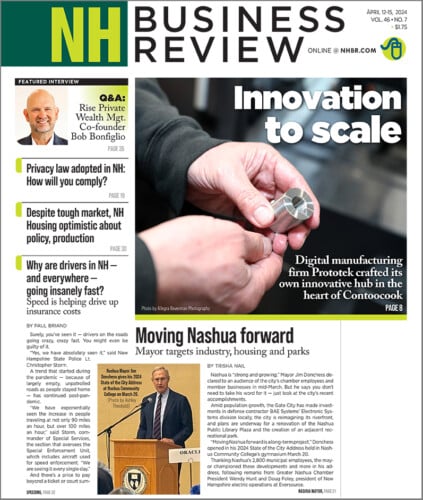Survey finds New Hampshire employers are concerned about retiring workforce
Growing number of impending retirements as state’s Hampshire’s population ages will create workforce challenges for employers, they say
New Hampshire employers continue to voice concerns about finding replacements for their older employees as they reach retirement age,
According to a survey of 53 major employers, conducted by AARP New Hampshire and the Business and Industry Association of New Hampshire, employers are uncertain about how to retain the knowledge of their employees as they retire, and they wonder whether their employees have enough information to make smart retirement decisions.
The growing number of impending retirements as New Hampshire’s population ages will create workforce challenges for employers, most of whom say they don’t have a formal plan to address it, according to the survey.
“New Hampshire has one of the oldest average populations in the country and has trouble holding on to young people upon graduation. With fewer younger workers available, New Hampshire’s older workers are becoming an increasingly important source of experienced labor,” said BIA President Jim Roche. “To remain productive, business leaders must find ways to incentivize workers at retirement age to stay on the job longer and transfer their considerable knowledge and skills before they leave.”
One-third of the businesses responding to the survey said they offer a phased retirement for employees wishing to work beyond the normal retirement age. A majority say they offer older workers flexible hours, part-time work, or professional development training. Only half said they think their older employees have a good understanding of benefits like Social Security, Medicare and their retirement programs.
Among the other findings:
• Nearly a quarter say they have employees who are providing care to an aging parent or relative.
• When asked to rate workers ages 50 and older on several characteristics, respondents rated as “excellent” their loyalty to the company, solid experience in the job, commitment to doing quality work, the ability to multitask, and a reliable performance record.
• Most of the responding businesses indicated it is “extremely” or “very important” their organization retain the knowledge and experience of retiring or otherwise departing employees.
• About half of respondents said their organization conducts workforce training to replace or transfer the experience and knowledge of retiring or departing employees.
• Most of the businesses said their company provides only “some” or “not enough” information to help older workers prepare for retirement.











